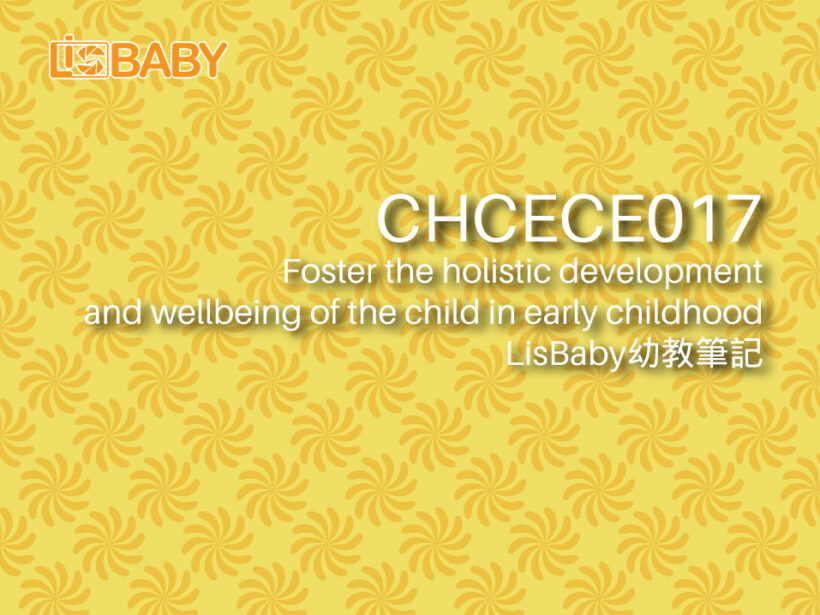小編今次分享的幼教課題是 CHCECE017 Foster the holistic development and wellbeing of the child in early childhood。中文是「促進兒童早期的整體發展和福祉」。這個課題非常重要,因為當你正式成為幼師的時候,每天都要寫Daily Post的時候就會用上,在你寫小孩的Observation的時候也會用得上這個課題的知識,所以大家一定要好好學習喔!以下內容都是小編覺得比較重要的部分,如果你有補充歡迎留言。
Fine motor
Fine motor movements are small, more precise movements and can be split into two categories:
• Fine manipulative skills – are the physical skills needed for writing, threading a needle, or doing a puzzle, where the pincer grip is used.
• Fine motor skills – are small movements that use the hands and wrists (eg turning a doorknob).
Gross motor
Gross motor movements are large and can also be split into two categories:
• Gross motor skills – Those movements that use an entire limb, eg to catch a ball.
• Locomotive skills – Those movements that are more extensive and help children to walk, run, and jump.
Co-ordinating movements
When movements require more than one skill, a child will need to coordinate the action. For example, doing a puzzle requires fine manipulative skills, and hand-eye coordination. Types of coordination include:
• Hand-eye coordination: Where eyes guide hands, eg when threading buttons on to wool.
• Foot-eye coordination: Where eyes guide feet, eg when jumping or skipping.
• Balance: Involves development of the central nervous system, so the person knows to ‘adjust’ their position, eg when walking along a beam in the playground.
Group discussions:
• Sit in a circle and open a topic of discussion (eg families, pets, weather); ask children to talk to each other about the topic.
• Set up equipment that will lead to the need to share (eg a tub of crayons in the middle of a table with four chairs).
• Be a good role model; join in with activities and demonstrate polite conversation (eg ‘Please may I have the orange crayon when you have finished, James?’).
• Show and tell (eg favourite toy).
• Teddy bear picnic: sit in a circle and have a pretend picnic. The educator could take the lead and ask if any of the teddies would like some juice.
Shared decision-making:
• Asking a group of children which story they would like (give them a choice of two or three).
• Ensuring children have the opportunity each day to choose their own activities during ‘free play’.
• Sharing decisions about the menu (ensuring that healthy foods are incorporated).
• Giving children choices, such as: where to sit / whom to play with / what type of juice they would like / topics they would like to cover.
【關於LisBaby旅食百變】
 訂閱“LisBaby旅食百變的YouTube頻道”看新片!
訂閱“LisBaby旅食百變的YouTube頻道”看新片! 追蹤“LisBaby旅食百變的Facebook專頁”了解最新動向!
追蹤“LisBaby旅食百變的Facebook專頁”了解最新動向! 更新“LisBaby旅食百變的網站”看新的文章吧!
更新“LisBaby旅食百變的網站”看新的文章吧! 歡迎商業合作請「聯絡我們」感謝!
歡迎商業合作請「聯絡我們」感謝!

